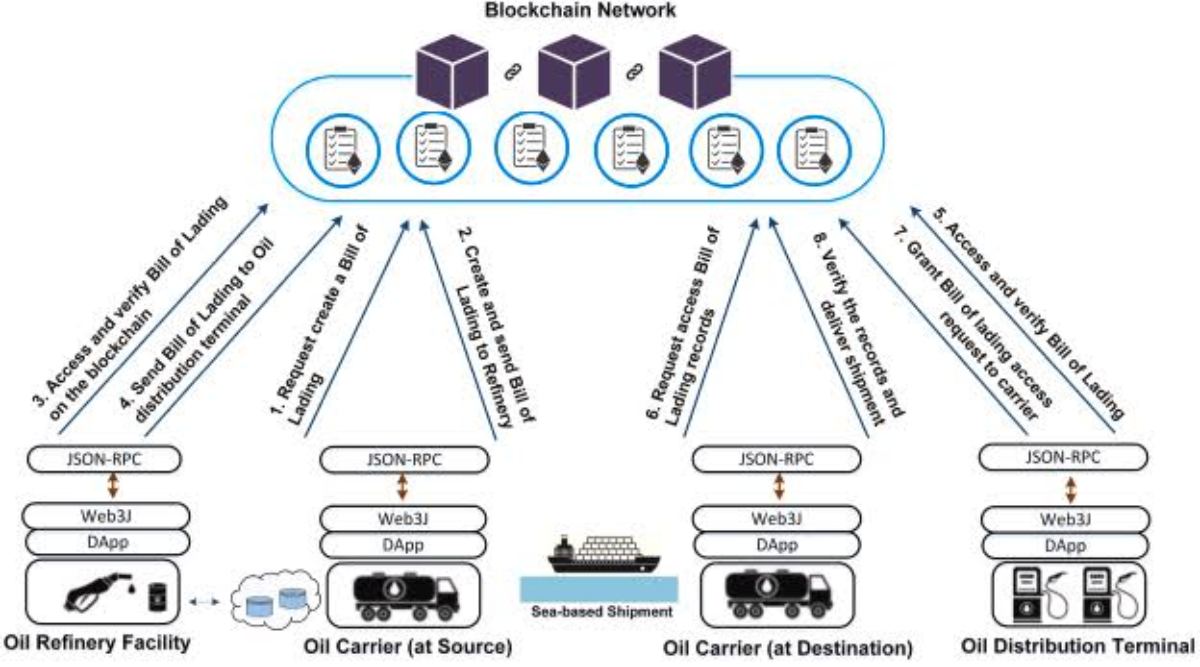Blockchain relies on distributed ledgers updated independently but simultaneously by groups of peers who validate transactions. It makes blockchain virtually tamper-proof, as other peers would detect changes to one copy in a matter of minutes. Blockchain also helps reduce transaction costs associated with paper-based processes, which are often necessary due to slow reconciliation speeds among corporate entities. If you are planning to trade oil, you should look for reliable trading app such as this app.
The parties to a transaction have different roles. The role of a buyer is to receive the lowest possible price, and the role of a seller is to earn the highest price. Buyers and sellers do not see eye-to-eye pricing because buyers value quality while sellers are incentivized to maximize profits. It creates trust issues between buyers and sellers because the lack of transparency in the supply chain creates mistrust among participants, leading to increased transaction costs and slower execution times.
Blockchain technology provides supply chain transparency that enhances trust in transactions and untangles transactions across multiple parties by creating a shared ledger. Blockchain technology can be helpful in multiple industries, especially where trust and transparency are critical to a transaction. For example, in the oil and gas business, blockchain will bring about an independent verification of transactions from a third party who can confirm that the information on the shared ledger is accurate and current, allowing for faster execution times compared to reconciling paper-based data.
There are numerous ways in which blockchain technology can enhance supply chain efficiency in oil and gas, but the below-listed information will focus on some of the ways. Here we will explore where blockchain technology can disrupt the oil and gas industry by exploring what blockchain is and why it’s necessary to disrupt it. Blockchain positively impacts supply chain efficiency in oil and gas in the following way:
Table of Contents
Blockchain provides transparency:
Transparency is one of the biggest challenges in supply chain management due to trust issues between buyers and sellers. Blockchain can enhance trust in transactions by providing a faster and cheaper verification of the data on this distributed ledger. In addition, it will reduce the cost of auditing and arbitration between parties.
The Blockchain provides audit capability:
Both internal and external stakeholders can follow the supply chain process allowing them to have a more comprehensive view of their business relationships and transactions. In addition, it makes it easier to identify issues that require further investigation, which improves operational efficiency by eliminating duplication in operational procedures.
Blockchain reduces paper-based processes: Paper-based processes are costly due to transaction delays, errors, and costs associated with physical paperwork. TBlockchain reduces these costs by providing real-time feedback on transaction validation and quick access to information from multiple locations at one time.
Blockchain improves the quality of information: Data quality is one of the essential elements in the oil and gas industry because of the complex nature of many business processes. Blockchain creates an environment that facilitates supply chain integrity by decreasing missing or incorrect data with a shared view among all participants.
The Blockchain helps manage disruptions: Blockchain can improve risk management by creating a shared ledger with independent verification, eliminating single points of failure and errors. These benefits make managing disasters and other disruptions easier, improving operational efficiency by reducing downtime.
Blockchain reduces execution times:
Blockchain reduces transaction costs associated with paper-based verification processes, security clearance checks, multiple signature approvals. And other similar procedures that take a long time to complete.
The Blockchain reduces operating costs: By reducing uncertainty and the need for reconciliation. Blockchain reduces the cost of reconciling transactions and helps improve the overall cost of doing business.
ThBlockchain improves quality assurance:
Blockchain will eventually enhance the quality of records by providing data access to multiple users simultaneously. In addition, it helps verify that all stakeholders have access to the same version of data.
The Blockchain enhances governance: Multi-party collaboration will lead to superb data management and reporting quality. Which improves regulatory compliance by tracking multiple state jurisdictions at a lower cost.
Blockchain can also help optimize existing processes such as auditing, verification, reconciliation, due diligence, and contract reviews. In addition, it will help facilitate faster execution by managing data, thus reducing processing and reporting costs.
Using blockchain technology to track oil. And gas commodities provides valuable information that can have a use case to improve efficiency in the industry. The benefits of blockchain-related to supply chain efficiency in the oil and gas business are extensive. These benefits are suitable for various industries.
Disruption in the oil trading industry
Blockchain also provides increased transparency, which is perfect for the oil. And gas industry because it allows all participants to have a real-time view of the supply chain. In addition, it will improve trust in transactions. And eliminate delays by removing the human element that makes mistakes and complicates the process.
In the oil and gas industry, reconciliation is time-consuming, but blockchain will eliminate this tedious task through automation. Blockchain is also helpful because it can cut costs associated with security clearance checks, multiple signature approvals. And other similar procedures that take a long time to complete.

